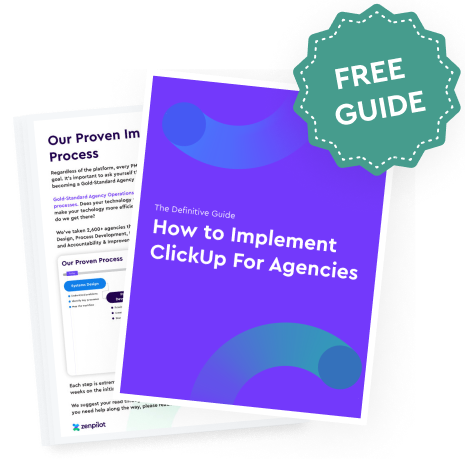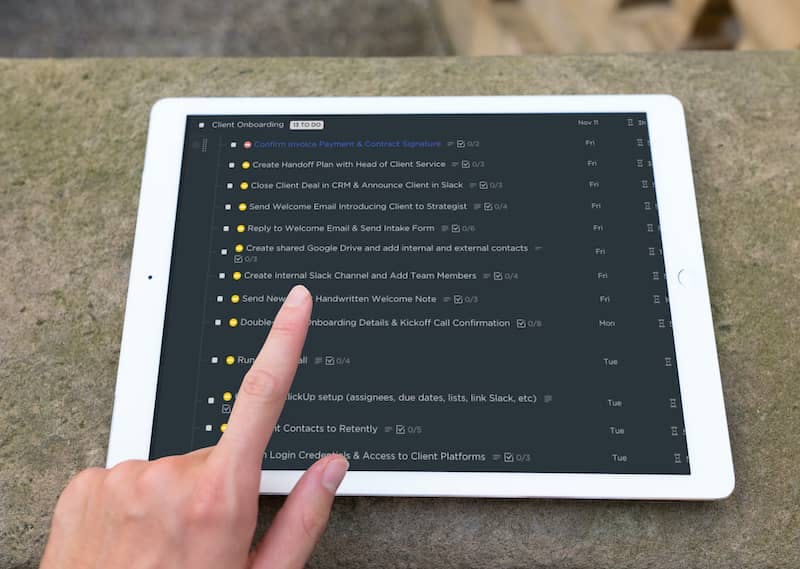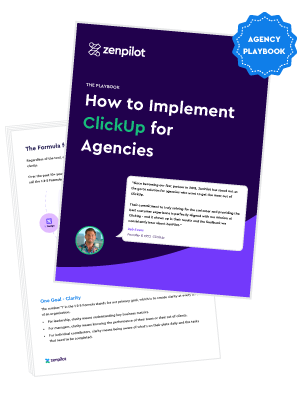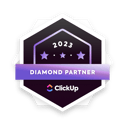How to Productize Creative Design Services (feat. Matthew McIver, Commence Studio)

Quickly delivering beautiful custom Shopify themes is an expertise many agencies develop. But custom work doesn’t scale.
Matthew McIver, founder of Commence Studio, was our guest recently on the Agency Journey podcast, and one of our conversation topics touched upon this.
Matt spoke about his team's journey productizing their custom theme work into a Shopify theme they could sell—Praise.
After years of bespoke theme projects, they realized they needed to package their expertise to grow.
According to Matt, "Really, as we have done those custom themes year over year for handfuls of brands—the cost of maintenance became expensive from our own internal revenue standpoint and profit margins. We started to look at: why are we rebuilding the wheel every single time?"
Watch our full podcast episode with Matt to hear more about this as well as EOS, partnerships, planning, and other insights!
Or you can go here to listen to the episode on your favorite podcast platforms.
For a convenient summary of Matt's thoughts on productizing creative design work, read on!
The Tension of Custom vs Scalable (Productized) Work
Most agencies face the tension between completely custom work and scalable services or products.
On one hand, custom projects often pay the bills in the early days. You're leveraging your core expertise to solve clients' problems in a tailored way. This high-touch approach helps attract early adopters and prove your abilities.
But eventually, the treadmill of churning out one-off projects takes a toll.
It's true that custom work taps into the artisanal appeal of white glove service.
As Matt put it, "We love that crafted side and (...) to build a unique branded solution."
But it might make it difficult to move the needle.
Custom work doesn't scale. Each project starts from scratch. You end up trapped on a hamster wheel, trading time for money with no leverage. Margins and profits suffer as you continuously reinvent the wheel.
Additionally, spreading yourself across too many custom projects leaves little time for innovation. You end up having no time to even step back and identify repeatable models. You get bogged down in constant client delivery.
So it's clear: the economics of custom work only add up for so long. To scale beyond trading time for dollars, you need to shift gears.
Related: The Power of Process & Productized Services
Packaging Services into Products
Many agencies realize they need to productize their services at some point to grow. But making the leap from bespoke to packaged offerings is tough.
We asked Matt how and when productization started to fit into their evolution. He told us the story from the very beginning:
"When we founded the company in 2014, we were primarily a design studio at that point...Then we discovered Shopify about, I would say it was 2015. We had a couple of clients come to us and really start to expand our technical capabilities."
Early on, custom development work in Shopify got their foot in the door. It became a core expertise for Commence Studio. But over time, the downsides and overhead became clear.
Matt and his team realized they needed to shift gears. Matt elaborates:
“Fast forward to today, we're actually building our own third-party theme, which is going to be on the Shopify theme marketplace about the time this podcast airs. Our product will be called Praise."
This pivot allowed them to package and productize their expertise in a leveraged way. One theme could meet the needs of many vs. fully custom builds.
Related: How to Build Your Digital Agency, Create Products, and Grow Your Brand
Benchmark Your Agency Ops
Take the Agency Project Management Benchmark Assessment to see how your operations stack up against 3,000+ other agencies.
Validating a Product Idea
Most agency service offerings tend to evolve gradually over time through client work. But launching a standalone product like a Shopify theme is a much bigger leap.
How did Commence Studio validate the idea for Praise and refine the product before officially going to market?
A key factor was joining the Shopify Theme Accelerator program:
“We were a part of the Shopify Theme Accelerator program last year in 2022. That was an invite-only program. We got rated as one of the best themes they had seen in a while in the design review process.”
Being invited into this exclusive program was huge. It meant getting direct feedback from the Shopify product team throughout development. They could see if they were on the right track and make improvements pre-launch.
Matt elaborated on the experience:
"We're really excited. We're leveraging our design chops there, kind of like our origins, but then blending it with the technology capabilities we have now."
The Shopify community also gave them access to an engaged user base to test and refine Praise before public release. This real-world validation was invaluable.
Agencies looking to spin up products should look for relevant communities, accelerator programs, and beta users to refine offerings. Don't go to market untested.
Related: Why Agencies Struggle to Scale (and How to Fix It)
Balancing Services and Products
For agencies considering spinning up productized services, the million dollar question is:
How do you balance ongoing service revenue with standalone product sales?
Done right, they can feed into each other. You don't necessarily have to take a wholesale pivot.
As Matt explained, Praise complements their services rather than replacing them:
“If you have a client that needs an e-commerce solution, Shopify is the golden standard in our expert opinion. The Praise theme will be a great resource for a lot of food and beverage retailers, distilleries, breweries, a lot of people in the food and beverage space, CPG. It's a great theme for that category and industry.”
He also explained the specific situations in which the theme will be most useful:
"If you are lacking code resources, this is a great way to spin up a website in a matter of hours for your clients. I'm really excited about that."
Matt reiterated that products create leverage:
“It really excites me to have a core focus... and a slight plug here for ZenPilot:
"During our Implementation phase (...) I've been tallying it up for this new business Commence Commerce that we're going to launch here. It'll primarily be focused on building Shopify themes for the theme marketplace exclusively over the next couple of years.
There's 16 core processes that I have to maintain and train and manage on. That just gets me really excited with the efficiency from a business structure."
Read that again: just 16 core processes, identified thanks to the power of focus, a systematized approach—and a little help from your friendly neighborhood agency ops experts here at ZenPilot.
With core processes and products in place, services can scale efficiently around them. You aren't starting from scratch each time.
Related Client Story: Commence Studio Increases Client Satisfaction with Streamlined Operations
BONUS
Download the Complete ClickUp for Agencies Guide FREE
The 47-page guide includes graphics, checklists, and links to how-to videos so you can actionize your ClickUp plan.

Summary: Tips for Productizing Agency Services
If you’re considering spinning up a product like Commence Studio did, here are some tips based on Matt’s insights and our experience:
✅ Audit where you have leverageable expertise
Conduct an analysis of the projects and services you deliver to identify repeatable patterns and core knowledge. Document your secret sauce.
Related: The Ultimate Guide to SOPs: Turn Your Business Into a Process-Driven Machine
✅ Identify modules and components with reuse potential
Look across your recent work for elements like templates, frameworks, and modules with product potential.
✅ Codify and package your expertise into products
Synthesize and organize knowledge, templates, and modules into products and tools. This could be themes, plugins, digital downloads, info products, etc.
✅ Join communities and accelerators to validate and refine
Get direct end user feedback by joining relevant groups and accelerator programs pre-launch. Incorporate insights before public release.
✅ Develop pricing and packaging strategies
Determine appropriate pricing, licensing models, and bundles based on customer segments and product capabilities. Outline editions, features, and limits.
✅ Balance product and service revenue streams
Use products as lead magnets and upsells to fuel ongoing services. Don't abandon services outright as they provide reciprocity.
✅ Maintain razor focus
Avoid spreading yourself across too many disparate products and projects. Limit scope so you can concentrate resources.
✅ Implement systems to scale efficiently
Wrap products with streamlined processes for sales, onboarding, implementation, and support. Automate where possible.
Productizing takes time and testing, but pays dividends through leveraged growth.
Related: 7 Agency Project Management Lessons from 8 & 9-Figure Agencies
Client Onboarding ClickUp Template
Access our pre-built Client Onboarding ClickUp template, 100% free.

Matt's Parting Advice
To wrap up our conversation, we asked Matt for his single biggest piece of advice for other agency owners considering productizing services:
"Be fearless. Go forward, be daring, try something that other people aren't doing."
Sometimes you have to take calculated risks and tune out the noise to build something remarkable. If you take Matt's advice, you will ask that self-doubt voice in your head to be quiet—and trust your vision.
For the full story about Praise—as well as Matt's insights on EOS, planning, partnerships and more–be sure to check out his full Agency Journey episode!
Productizing Services Is Just One Step Towards Gold-Standard Agency Operations
Productizing services is an exciting chapter in your agency's growth—you're finally unlocking the systems that will allow you to delight your clients at scale and transform your bottom line.
But to truly make your agency a well-oiled, process-driven machine, you need to take care of three key things:
- Document and systematize your processes, as well a system for expanding and updating your SOPs;
- Put all of your work—both custom and productized—into a work management tool that will become your single source of truth and main project communication hub;
- Train your team on the habits they'll need to use the tool consistently so that work stays in the tool and your processes continue to grow, allowing you to build more productized services.
Luckily, our team at ZenPilot can help you with all of that.
Or grab our ClickUp for Agencies Guide or Teamwork.com for Agencies Guide to teach yourself how to implement the ZenPilot System that's helped 2,700+ agencies revolutionize their operations.






